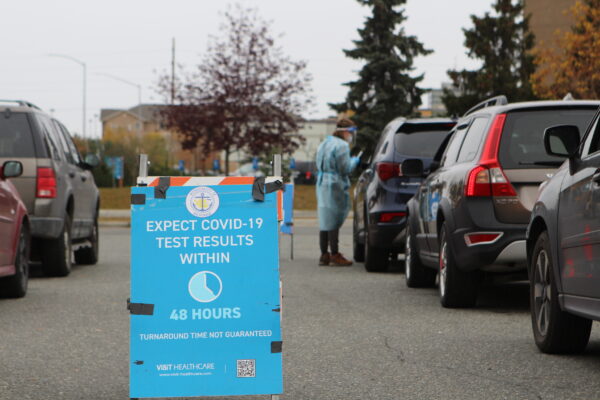
The federal government sent so much COVID money to Alaska last year that it increased federal funds to state government by nearly a third.
That’s one of the findings of a report from the Pew Charitable Trusts. Nationally, the report says, COVID spending amounting to 25% of all federal grants to states in 2020, second only to Medicaid, the health insurance program for the poor.
“I think it’s really important context for states to know just how much of their grant funding is related to COVID or to Medicaid or to other programs,” said Rebecca Thiess, an author of the report.
For the state of Alaska, COVID dollars in 2020 were nearly equal to the state’s allotment of federal Medicaid spending, which was about $1.5 billion.
Most of the pandemic spending in the report is from the Coronavirus Aid, Relief, and Economic Security Act. States couldn’t use CARES Act funds for items that were already in their budgets, or unrelated to the pandemic. Thiess said that created some inflexibility for states.
“There were specific prescriptions that the Cares Act could be used for, and that didn’t allow states to kind of do whatever they want with it, or plug whatever holes they wanted with it,” she said.
The Pew report is limited to 2020 spending, so does not cover the major COVID relief bill Congress passed in 2021, the American Rescue Plan Act. ARPA gave states more leeway. States, for instance, can use ARPA money to make up for lost revenues.
The budget Gov. Mike Dunleavy announced last week relies on $375 million in unrestricted federal COVID funds.
Liz Ruskin is the Washington, D.C., correspondent at Alaska Public Media. Reach her at lruskin@alaskapublic.org. Read more about Liz here.





